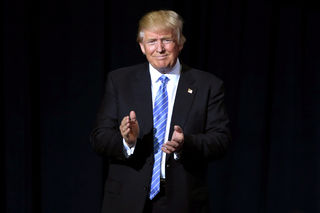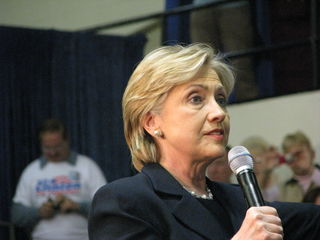Personality
Profiling Politicians’ Personalities: Are Experts Biased?
New research suggests experts fail to set aside bias when labeling politicians.
Posted February 15, 2018

As someone with a keen interest in psychology, you may have some experience of taking personality tests. Many of the most popular — and scientifically supported — of these tests are based on the five factor model of personality. The so-called “Big 5” personality traits are openness to experience, conscientiousness, extroversion, agreeableness, and emotional stability. A person can score high or low on any of these traits.
Psychologists don’t necessarily need you to sit a test to give you a score: it’s possible to build up a profile of someone’s personality from afar. And in recent years it’s become common for experts to pronounce on the personalities of famous individuals, including our political leaders. But how valid are these personality profiles?
Joshua Wright and Monica Tomlinson of the University of Western Ontario have tested this question in a paper published in the journal Personality and Individual Differences.
Wright and Tomlinson started their investigation with a pair of recently released personality profiles of Donald Trump and Hillary Clinton. These profiles were prepared by personality experts, and label Trump as high in extroversion, average in openness to experience, and low in conscientiousness, agreeableness, and emotional stability. Clinton was judged to be high in conscientiousness and emotional stability, and average in openness to experience, agreeableness, and extroversion.

However, almost all of the experts who produced these profiles self-identified as politically liberal, calling into question their impartiality. This might be a problem, given that personality traits are socially desirable: it is seen as good to be open to new experiences, agreeable, or emotionally stable. Can experts set aside their personal political ideologies when profiling political leaders, or are they swayed by their beliefs?
In the days following the 2016 US presidential election, Wright and Tomlinson asked 360 Americans to judge the Big 5 personality traits of Trump and Clinton. The volunteers also rated their own political persuasions on a scale from “extremely liberal” to “extremely conservative” and revealed how they had voted in the recent election.
The results of the study showed that the personal politics of the raters were associated with how they characterized the personalities of the two leading candidates in the 2016 election.
Compared to a control group of political moderates, Clinton voters rated Trump lower in conscientiousness and openness to experience. Conversely, Trump voters rated the then president-elect higher in agreeableness, conscientiousness, emotional stability, and openness to experience.
When it came to ratings of Clinton, those who voted for the Democratic nominee thought she was higher in agreeableness, conscientiousness, emotional stability, and openness to experience. Compared to moderates, Trump voters thought Clinton was lower in conscientiousness.
The ratings of the liberal experts were very closely aligned to those of the left-leaning voters.
Wright and Tomlinson conclude that expert and non-expert ratings of personality are biased by political preferences.
In their paper, the researchers...
...caution against interpreting expert personality ratings of political candidates when the samples of experts are politically imbalanced, especially given that there is currently no evidence that experts are more accurate in their ratings of the personalities of political candidates, or that they are immune to political bias.
References
Wright, J. D., & Tomlinson, M. F. (2018). Personality profiles of Hillary Clinton and Donald Trump: Fooled by your own politics. Personality and Individual Differences, 128, 21–24. doi:10.1016/j.paid.2018.02.019


